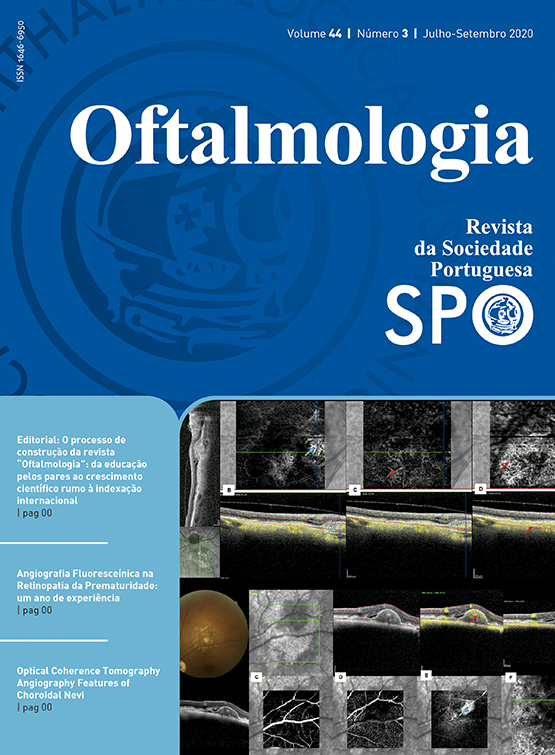UNILATERAL TRANSIENT VISION LOSS FOLLOWING BILATERAL INTRAVITREAL OCRIPLASMIN – CASE REPORT WITH TWO YEARS FOLLOW UP
DOI:
https://doi.org/10.48560/rspo.20166Abstract
Abstract
Background: Ocriplasmin is a serine protease approved for the treatment of symptomatic vitreomacular traction (VMT). Post-marketing experience has revealed safety concerns.
Materials and Methods: Retrospective case report. Clinical and surgical data were analyzed.
Results: We report a case of intraindividual response to bilateral ocriplasmin injection in a 70 year-old female patient with symptomatic vitreomacular traction syndrome. A single surgeon injected the same patient twice, two years appart, following the same protocol. In the first eye we observed the commonest side effects and no VMT release while in the second eye we documented the rarer and severe ocriplasmin’s adverse events nevertheless with successful VMT release.
Conclusions: Ocriplasmin’s severe adverse events are unpredictable and underreported. The noticeable difference in adverse events is not accounted by patient, surgeon or tecnique’s variability. This case raises the question of whether the degree of enzymatic cleavage necessary for drug efficacy and VMT release may coexist with more retinal toxicity.
Downloads
Downloads
Published
How to Cite
Issue
Section
License
Do not forget to download the Authorship responsibility statement/Authorization for Publication and Conflict of Interest.
The article can only be submitted with these two documents.
To obtain the Authorship responsibility statement/Authorization for Publication file, click here.
To obtain the Conflict of Interest file (ICMJE template), click here





